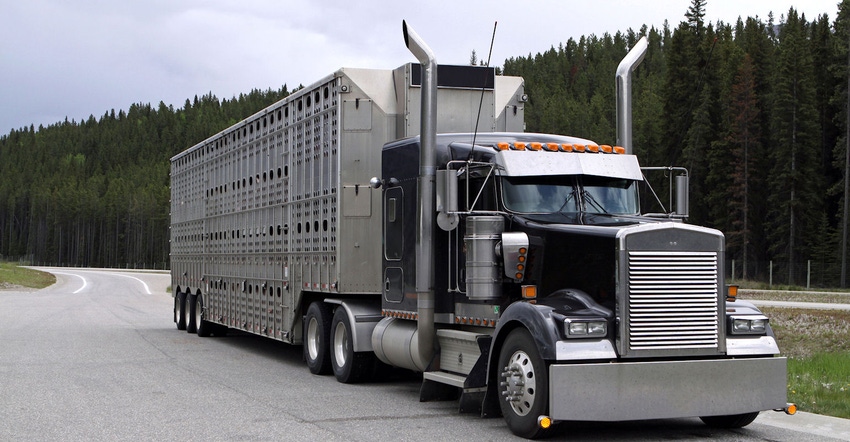11 talking points to discuss the ELD mandate
Need a refresher course on the ELD mandate and its implications on the livestock industry? Check out these talking points.
January 23, 2018

If you’re a livestock producer, a trucker, an auction market owner or manager, a stakeholder of any livestock enterprise involving cattle, hogs, sheep, horses, poultry, fish, wildlife and bees, or a person who cares about animal welfare and food quality/safety, then you might be keeping a close eye on the electronic logging device (ELD) mandate and the new requirements from the Federal Motor Carrier Safety Administration that would dramatically change the rules for livestock haulers and how long they will be required to rest while hauling livestock.
In a recent article, Protect The Harvest listed the reasons why the ELD mandate is such a problem for the livestock industry.
READ: Beef Quality Assurance launches new transportation program
Here is an excerpt: “The livestock hauling and other live cargo industries are asking the Federal Motor Carrier Safety Administration (FMCSA) to provide the industry with a longer-term extension to comply with the ELD mandate than the initial 90-day extension that has been granted. They have asked for this longer extension because it is clear that both the ELD mandate and the hours of service are not appropriate for the care and transportation of livestock. They believe, and we agree, that following the hours of service to the letter as is required with an ELD will be a giant step backwards for animal welfare and agriculture.”
If you’re not up to speed on the nuances of this particular rule, Protect The Harvest does a great job of outlining the implications and providing talking points for discussions you may want to have with your elected officials on this topic. Plus, they list the numerous agricultural organizations, public officials and lawmakers who also have concerns with this mandate. It can be found in one convenient spot for your reference.
With 11 main talking points broken down into more detailed individual sections, this is a great refresher on the nuances of this particular mandate.
For example, Protect the Harvest explains the problem with the required 10-hour driver rest period, saying, “The trailers that move livestock have been designed with the animals’ well-being in mind. They have a special suspension system as well as venting that allows for air flow. Air flow is especially important on hot days to keep the animals in the trailer cool and comfortable. Animals are not inanimate cargo that can sit in a trailer for an extended period. Animals are transported every day, all thorough the year. If a trailer is stopped during hot days on the side of the road or at a rest area, there are no good outcomes if the animals have to stay on the trailer during that time.”
READ: Have you hugged your cattle hauler today?
What’s more, if truckers are required to unload animals at a facility during the 10-hour rest period, there are definitely limitations.
Here’s why: “Following the 10-hour rest period to the letter would require that animals are unloaded at a facility because they cannot stay in the trailer during that time. Facilities that can handle the unloading, layover care, and reloading of livestock onto trucks are few and far between. There simply are not enough facilities on major transportation routes to handle the numbers of livestock that are transported across the country every day.
“Even if there were plenty of suitable facilities to off-load and lay over animals, no matter how carefully stockmen and women handle their livestock, there is a certain level of stress that can occur when groups of animals are moved. Frequent loading, unloading and re-loading again puts both the animals and stockmen at risk of injury.”
While the government may be shut down, there’s no reason why we still can’t be active in talking about this issue with our congressmen and women. Pick up the phone and give one a call. Many may not even realize the ramifications of this, so education will be key to adjust these requirements to be more appropriate for livestock hauling and care while on the road.
The opinions of Amanda Radke are not necessarily those of beefmagazine.com or Farm Progress.
About the Author(s)
You May Also Like




.png?width=300&auto=webp&quality=80&disable=upscale)
